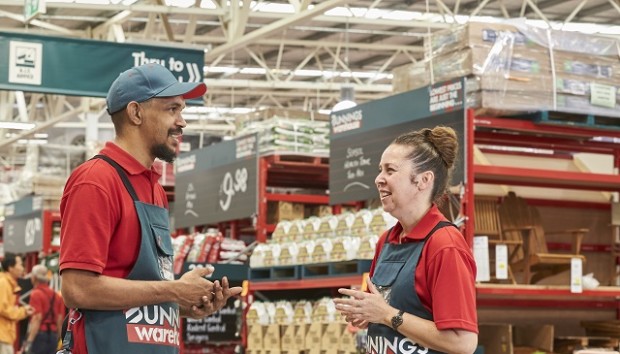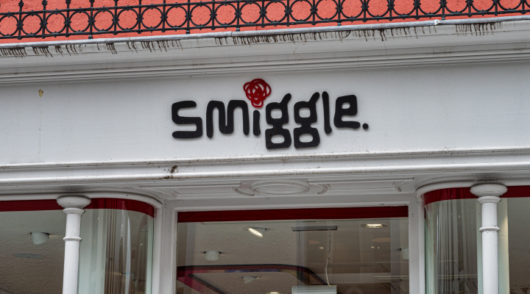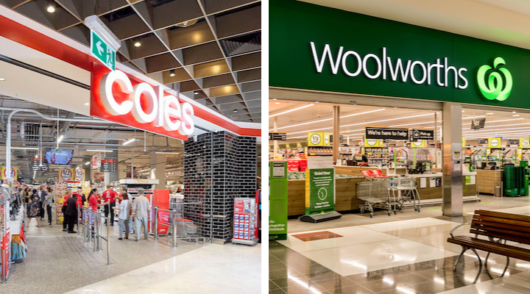
Wesfarmers has reported solid FY20 results off the back of strong performances in its retail division, including double-digit increases in sales and earnings at Bunnings and Officeworks, and revenue growth at Kmart Group, despite the impact of the loss-making Target chain.
Total FY20 revenue from the conglomerate’s retail, chemicals, energy and fertiliser and industrial and safety divisions, as well as its remaining stakes in Coles and Flybuys, was $30.8 billion. This represents a 10.5 per cent increase on FY19.
Underlying net profit after tax from continuing operations and excluding significant items was nearly $2.1 billion, an 8.2 per cent increase on FY19.
Statutory NPAT, including discontinued operations and significant items related to restructuring actions in Kmart Group and non-cash impairments in Target and the industrial and safety business, was $1.7 billion.
Wesfarmers’ managing director Rob Scott said the results were a “testament to the dedication of team members and leaders across all businesses” in a challenging year impacted by catastrophic bushfires and Covid-19.
The global pandemic had a significant impact on Wesfarmers in FY20. While Government stimulus measures and the shift to spending more time at home resulted in increased demand for some products and categories, particularly at Bunnings and Officeworks, it also caused stock shortages, particularly at Kmart.
Operational costs also went up, due to the implementation of new social distancing and hygiene measures in-store, and the introduction of paid pandemic leave for permanent and casual team members.
Wesfarmers did not receive material government support in FY20 and is not receiving JobKeeper payments. It received approximately $40 million in wage subsidies outside of Australia, almost entirely in New Zealand, where the Government mandated temporary store closures and trading restrictions.
In this context, Scott said the strong earnings delivered by Bunnings and Officeworks “demonstrated the ability of these businesses to rapidly adapt to the changing needs of their customers”.
He also highlighted the performance of Catch, which helped the retail giant generate about $2.1 billion in online sales across the group.
“This reflects the significant investment in digital capabilities over recent years, as well as the continued change in customer preferences towards online shopping,” he said.
Excluding Catch, the group’s retail businesses saw online sales increase 60 per cent in FY20 from the the previous corresponding period.
The performance of Wesfarmers’ individual retail businesses are below:
Bunnings
Revenue for Bunnings increased 13.9 per cent to nearly $15 billion in FY20, with earnings also increasing 13.9 per cent to $1.9 billion. Excluding the net contribution from property, earnings were up 17.8 per cent on the prior year.
Scott attributed this growth to the shift in consumer behavioru during the lockdowns, which saw many Australians undertaking projects around the house.
He noted that Bunnings continued to execute its strategic agenda and accelerated the development of its digital offer during the period, including the rollout of click and deliver and launch of an e-commerce platform in New Zealand.
Officeworks
Revenue for Officeworks was up 20.4 per cent to $2.8 billion, thanks to the significant demand for technology, home office furniture and learning and education products.
Earnings increased 13.8 per cent to $190 million. This was despite lower margins from a change in the sales mix, investment to reduce prices and Covid-19 related operating costs.
Kmart Group
Despite a 7.2 per cent increase in full-year revenue to $9.2 billion, Kmart Group posted a $222 million loss, including significant items related to the group’s restructure and payroll remediation costs. Excluding these items and costs, earnings were still down 21.9 per cent on the prior year to $422 million.
The group results were heavily impacted by the loss-making Target business. Kmart recorded solid earnings despite volatile retail conditions, increased wages under a new enterprise agreement, higher shrinkage and unfavourable foreign exchange movements. And Catch saw a nearly 50 per cent increase in gross transaction value during the period, thanks to growth in its retail and marketplace offerings and ongoing growth in its Club Catch membership program.
Outlook
Wesfarmers remains wary of the impact Covid-19 will have on its business in FY21. While retail sales continued to grow into July, the introduction of Stage 4 restrictions in Victoria put a damper on foot traffic in stores, with Kmart and Target being the hardest hit. In addition, operating costs are expected to remain elevated.
However, the company believes it is well placed to respond to a range of economic conditions, thanks to a strong balance sheet and the diversity and resilience of its portfolio.
“In response to the high level of uncertainty associated with Covid-19, the group took actions to maintain significant balance sheet flexibility, with net cash of $471 million at the end of the year reflecting disciplined capital allocation, a strong operating cash flow result, as well as proceeds from the partial sale of the group’s interest in Coles,” Scott said.
“The group maintains committed bank debt facilities of $5.3 billion, providing significant funding capacity.”






